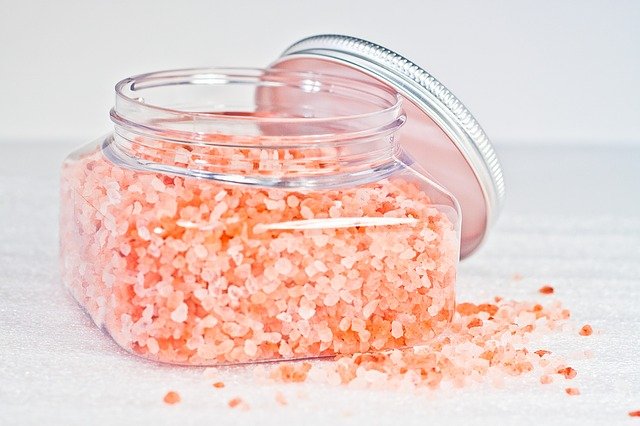High blood pressure is the most common disease in the world. But what really increases the tension? How to reduce it? Update with many specialists.
Summary
- Are we hypertensive because we are stressed?
- Does physical exercise affect tension?
- What role does diet play in hypertension?
- What is the link between weight and tension?
- Can diseases increase blood pressure?
- Insomnia, sleep problems have an impact on BP?
High blood pressure is an increase in blood pressure in the arteries. This increase is defined by:
A systolic blood pressure figure (the heart contracts and propels blood into the arteries) greater than or equal to 14 (or 140 mm of mercury (symbol Hg)); and a diastolic blood pressure figure (the heart relaxes), greater than or equal to 9 (i.e. 90 mm of mercury (Hg)).
Are we hypertensive because we are stressed?
Contrary to popular belief, there is no real link between nervous tension, stress, and high BP (more than 140/90 in the doctor’s office, 135/85 at home).
“Stress will simply produce, temporarily, a rise in blood pressure which can sometimes disturb its measurement,” say experts. On the other hand, it can cause additional difficulties in lowering the pressure in a hypertensive person who is undergoing treatment. “
Indirect effects of stress are, indeed, to be considered, certain people adopting so-called risky behaviours. Multiple studies have thus confirmed the link between alcohol consumption and the incidence of hypertension.
As for tobacco, “it does not affect the level of blood pressure, or really very temporarily after a big cigar,” notes experts. However, it considerably damages the arterial wall ”, increasing, in fact, the risk of cardiovascular disease in hypertensive patients.
Does physical exercise affect tension?
The endurance activities – running, brisk walking, cycling, golf, gardening or swimming – are recommended to maintain normal pressure. Their practice is effective “from twenty minutes, three times a week,” say experts.
The ideal is to have daily physical activity. This kind of physical activity does not only prevent hypertension, endurance exercises can also contribute to the effectiveness of antihypertensive drug treatment.
Conversely, sports such as tennis, squash or weightlifting increase tension.
What role does diet play in hypertension?
Consumption of more than 5 g of salt chloride (sodium) per day promotes hypertension. The real difficulty lies in the ability to measure consumption between visible salt, that added with the salt shaker, and hidden salt.
More recently, it has appeared that potassium , especially present in fruits and vegetables, is hypotensive, but the significant addition of sodium in the diet would largely neutralize its beneficial effect.
“We are supposed to eat enough fish, two or three times a week, not too much red meat, rather white meat, eat 200 to 300 grams of vegetables per day, and two fruits per day, or about 300 grams,” recalls experts.
Experts insists: “It is especially important to control the weight thanks to an overall lifestyle which includes a restriction of the consumption of salt contained in particular in very fatty foods. “
3 reflexes to adopt to reduce salt
- Reduce the quantity of the following foods: bread and rusks, cheeses, cold meats, aperitif cookies, and certain preparations including industrial soups.
- Avoid consumption of the most salty mineral waters, choose those containing less than 150 mg of sodium per liter.
- Avoid salting several times. For this, it is recommended to remove the salt shaker from the table.
What is the link between weight and tension?
Many studies have confirmed the existence of a positive association between the body mass index (BMI, equal to the weight in kg divided by the size squared, in m) and blood pressure: the higher the BMI, the higher the blood pressure.
“Overweight induces hormonal changes – resistance to high blood pressure, activation of the sympathetic nervous system … – which promote the increase in pressure”
Experts
Even a modest reduction in weight can significantly lower BP.
Can diseases increase blood pressure?
Yes. Diabetes, kidney failure – knowing that it is also caused by hypertension, so this is a vicious circle – increases the risk of hypertension.
Other pathologies, much rarer, can raise blood pressure. This is particularly the case of hyperthyroidism, but also, for example, Conn’s adenoma, Cushing’s syndrome, pheochromocytoma …
Certain drugs can also increase blood pressure, “but we are anecdotal,” says experts.
Insomnia, sleep problems have an impact on blood pressure?
” Sleep debt promotes the onset of subsequent hypertension,” says experts. People who sleep less than 7 hours, who wake up frequently or have trouble falling asleep, have an increased incidence of high blood pressure. “
Sleep apnea should be considered with particular attention. During each breathing pause, the oxygen concentration in the blood drops and the brain reacts by raising the blood pressure. Its screening is recommended when the blood pressure figures are not normalized during treatment; this disease can indeed make antihypertensive drugs partially ineffective.
Benefits of Low Carb Diet – The Best Diet Principle
Red fruits : Benefits for blood vessels
Yoga for Stress Relief: 12 exercises against stress and negative emotions


